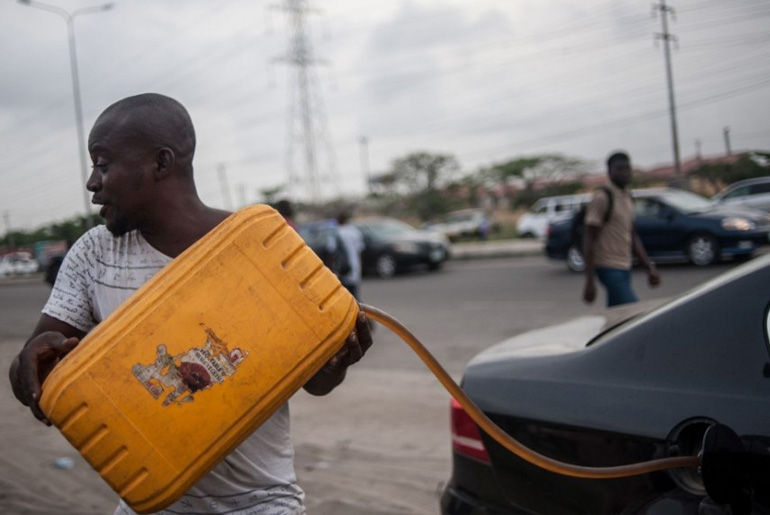Will fuel prices ever go back to normal?
Table of Contents
Well, we can’t certainly know what “normal” means—was it when a litre was N65 or when it was N120? Notwithstanding, what we can say is that fuel prices have been on the rise in recent months. One would think that with this high pricing of PMS (Premium Motor Spirit), the supply would be booming, but the reverse is the case in Nigeria.
Buy top trending Car accessories in Lagos and Original Korea Battery now Check @carfanzy Lagos on Instagram
Long lines and late nights and early mornings are what you would see whenever you pass a filling station these days. The long queues are quite perplexing because it would seem as if the whole community is out to buy fuel, and the worst part about the situation is that these filling stations, irrespective of the price they charge, still take time to be cunning in their craft so as to reimburse more money to their pockets.
By overcharging whenever you wish to fill your keg by paying a “keg fee” and filling the cars for those who tip them and allowing them to bypass the queues, the fuel situation could not get any worse than this, but could it?
Many people might be wondering if this crisis will ever end if fuel prices can drop back to more reasonable levels and if the supply can actually meet the demand. Well, we are here to answer all these questions. Keep reading this blog to get more informed about fuel increases in Nigeria.
Why is fuel so expensive?

We have to answer this question first before we can get into whether fuel prices will decrease in the near future. We are sure many are wondering how a litre of fuel, which sold at a base price of N169 a few months ago, would now be selling for over N300 in many filling stations across the country. In layman’s terms, we would break down the situation. Nigeria’s oil sector has been on a tightrope for over 20 years, and we are now reaping the proverbial fruits that were sown on our behalf. Two words: fuel subsidies. Well, most would argue isn’t that a good thing. That’s one way the government is trying to alleviate the city’s spending. On the surface, this type of government reform looks like a good scheme, but if you dig deeper, this scheme is putting the people in a bigger problem than it ought to be. We have our reasons for saying this.
We would give a practical example: imagine you run a business, and your total cost of production and all other factors total an overwhelming amount of N400,000 per week. But in a form of generosity and a bid to get more customers, you decide to sell your products below the threshold, and you are only bringing in a meagre profit of N150,000 per week, irrespective of the factors you put into production or the fact that you are involved in other businesses as well. Now, customers believe your products are the best and decide to patronise you more, giving you a higher demand, but with the profit, you are making, you cannot meet the supply for this demand, and therefore you are left with no choice but to increase the price of your products by three times their initial price, with the belief that those who will buy will buy.
This is the situation Nigeria is in, but instead of a business, we are dealing with the whole oil sector in the country. PMS, diesel, and other hydrocarbons will continue to rise as a result of this. What we are actually saying is that the expenditure the government spends on fuel from its extraction, production, and transportation is not being powerhouse by the revenue generated by the masses. One important thing people need to be aware of is that Nigeria has only three “working” refineries, and when we mean working, we mean it quite loosely.
What is usually gotten is that, because the process for refining what is known as “crude oil” is quite expensive, Nigeria has to export this obtained hydrocarbon to other countries to get it refined before we can get the finished product, which we know as gasoline. If you really want to know the actual amount that is spent on this particular scheme, you should look up the annual budgets of past years; you would be amazed.
So imagine when this fuel is being sold at N169, the government is running at a loss, and fuel marketers have a field day in this regard. Most people would think that Nigeria being part of OPEC (the Organization of Petroleum Exporting Countries) would solve the issue, but so far it hasn’t adequately done so.
This is the reason supply for PMS (Premium Motor Spirit) is low: there are no adequate means for large demands to be met if there is not sufficient revenue generated to aid the sector. Although licences have been issued to build more refineries, like the Dangote refineries, we have to keep our fingers crossed in this aspect to see if things change, but for now, subsidies don’t show the actuality of the situation.
Fuel marketers in various filling stations cannot bear the brunt of these costs, so the citizens have to pay for the service they are getting. This is why fuel prices continue to rise.
Will fuel prices ever go down?
We know the answer to this question would be disappointing, but no one should expect that fuel prices will return to “normal.” Although we can tentatively say the situation is not as tumultuous as it was a couple of weeks ago, one shouldn’t expect fuel prices to decrease. Mostly because we are still under the protection of “subsidies.” So if the incoming government decides to take away this “fuel subsidy,” fuel prices may reach N600 per litre or more. The reality people need to contend with is that, as long as these subsidies are in place, and the more government expenditure supersedes revenue in the oil sector, the long queues and fuel scarcity there will be. There is a possibility that building more refineries might reduce their cost, but we should not hold our breath.
What Can You Do To Reduce Fuel Costs?
- One thing to do to reduce fuel costs is to minimise the way you use your generators. Most people use up to eight hours on their generators; reduce the time to five hours.
- You should try as much as possible to walk or enter public transport if you are going a short distance.
- Solar panels and inverters are the new way to improve your enjoyment and stay safe on fuel prices.
High fuel prices should not negate you from buying a car, If you are on the lookout for affordable cars with good mileage and fuel economy, you should check out carmart.ng
Have 1 million naira and above to Buy or Sell Cars In Nigeria? Check Carmart.ng RIght Now
All rights reserved. Reproduction, publication, broadcasting, rewriting, or redistribution of this material and other digital content on carmart.ng is strictly prohibited without prior express written permission from Carmart Nigeria - Contact: [email protected]
Stay informed and ahead of the New Car info! Follow The Carmart Blog on WhatsApp for real-time updates, Cheap Cars, and Latest new car content. Don't miss Any –
Join The Carmart Blog Channel









